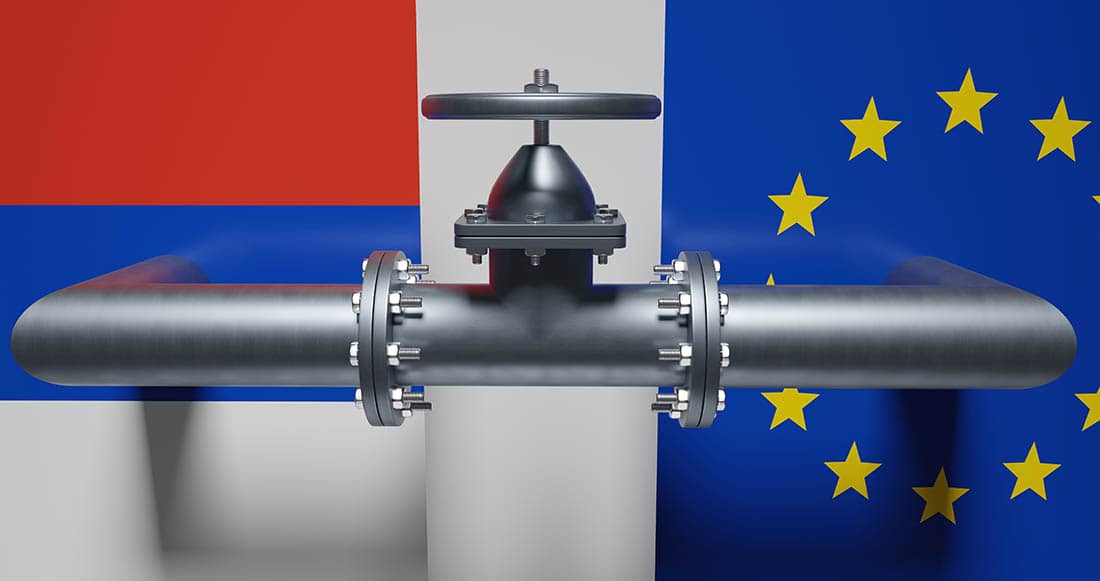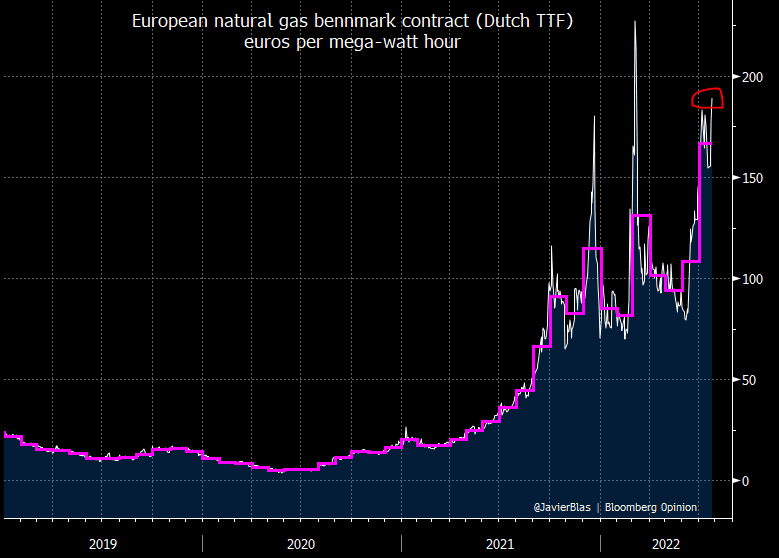Euro Under Fresh Pressure on Surging European Gas Prices
- Written by: Gary Howes
-

Image © Adobe Stock
Fresh reports of restricted Russian gas supplies to Europe are heaping fresh pain on the Euro.
The Eurozone's single currency was amongst the biggest losers on Tuesday, July 26 after Russia said there are some problems with another Nord Stream turbine.
The news confirms fears that Russia was ready to severely restrict gas flows to Europe in response to Europe's support for Ukraine.
Dutch wholesale weekend gas price rose 17% to 192 euros/MWh, European natural gas TTF Cal23 surged above €150 per MWh, setting a fresh all-time high for the contract.
Above image courtesy of @JavierBlas
Russia’s latest move to cut natural gas supply to Europe meanwhile intensified global competition for LNG, the type of gas that is supplied in liquid form via tankers.
Bloomberg reports Asian importers are accelerating plans to buy LNG cargoes for winter out of fear Europe will hoard supply.
As a result LNG prices are seen surging to mid-$40s/mmbtu.
"The risk that Russia cuts off the gas completely and paralyses economic powerhouses like Germany during the winter is hanging like a sword over the euro," says Marios Hadjikyriacos, Senior Investment Analyst at XM.com.
The Euro to Dollar exchange rate is down three-quarters of a percent on the day at 1.0150, with banks offering around 0.9863 for dollar payments and FX specialists offering around 1.0117.
The Pound to Euro exchange rate was seen a third of a percent higher at 1.1824, bank accounts were offering euro payments around 1.1588 and FX specialists at 1.1780.
Concerning the outlook, "anything is possible but it is fruitful to consider that this is the ‘nuclear’ option for Russia as well," says Hadjikyriacos.
"Europe imports around 35% of its energy from Russia, yet Russia collects around 70% of its energy revenue from the European Union, and this supply is sent mainly through pipelines that cannot be rerouted to Asia," he explains.
Gas prices will remain an acute source of anxiety for markets looking at Europe over coming days and months.
Further squeezed gas supplies and higher prices will therefore continue to weigh on the single currency.


